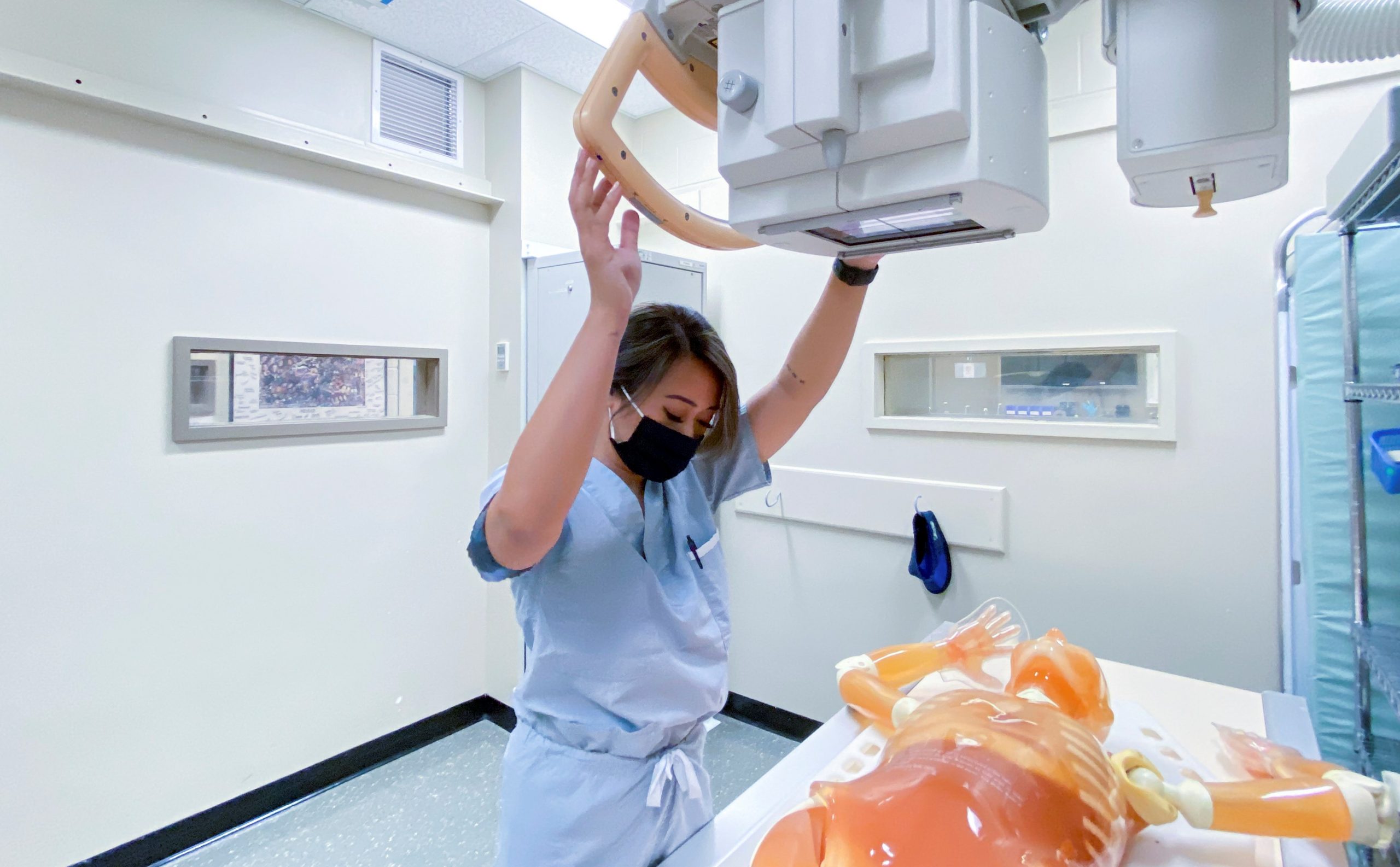One could argue that no other sector has been more directly impacted by COVID-19 than healthcare.
Students and faculty in the BCIT School of Health Sciences are all too aware of this and have displayed utmost resilience as they adapted to new methods of learning brought on by the pandemic.
Looking back over the last year, what are some noteworthy lessons learned, both from an education and healthcare perspective, and what are the most important skills for Health Sciences students moving forward?
BCIT School of Health Sciences pivots during the pandemic
Prior to the pandemic, Health Sciences students learned primarily on campus through lectures, group activities, and labs. After the lockdown in March of last year, however, students shifted entirely to remote learning within just a few days.

Lisa Chu, Dean of the School of Health Sciences, says although it was challenging, it was also a testament to the students’ built-in abilities.
“It was a big adjustment for everyone,” says Lisa. “But because students were already used to the rigors of BCIT’s program delivery, they were able to adapt very quickly.”
She adds that the sudden pivot to online was also challenging for some instructors, but thanks to support from BCIT, they were able to adjust successfully.
Lisa credits the students’ agility during COVID-19 to the Institute’s long history of delivering flexible, innovative, and future-proof education.
“BCIT students have been trained to think on their feet long before the pandemic, so they were more prepared than they realized.”
The School of Health Sciences has since shifted to a blended learning approach – a combination of online instruction, including the use of virtual simulation technology, and hands-on components taught on campus, under strict COVID-19 health and safety protocols. Select clinical placements continued to take place to ensure students were equipped with real-world experience when they graduated.
Industry collaboration paves the way to support student success
There is no doubt the pandemic delivered an array of challenges, but as Lisa explains, it also led to some unexpected opportunities.
“It has really accelerated innovation and change,” says Lisa. “The pandemic forced us to think outside of the box, and really changed our perspective on what education can look like.”
She says the pandemic further strengthened the connection between the School of Health Sciences and industry partners, allowing for increased sharing of knowledge and resources.
“Our partnership with industry was already well-established,” says Lisa. “But the pandemic brought us even closer, allowing us to work together to find solutions in real time.”
The School of Health Sciences also harnessed its creative minds to offer direct assistance to the hard-hit healthcare system.
“During a shortage of care aides last summer, some of our students were getting certified and pitching in at long-term care facilities,” says Lisa.
The School also donated an assortment of personal protective equipment (PPE) to health authorities last spring after in-person classes were cancelled, and even developed online training modules to help nurses and physicians assist COVID patients.
“In response to industry demand during the pandemic, our nursing team created Focused Education Preparation Advancing Frontline Registered Nurses (FEPA) — a fast-tracked, educational course specifically designed to upskill people on the frontlines so they could better serve patients with COVID-19,” says Lisa. “To date, FEPA has been completed by over 12,000 nurses and healthcare providers across Canada and the United States.”
SEE MORE: Looking Ahead: Computing and IT in 2021 and beyond
Future-proof careers in Health Sciences
According to WorkBC, registered nurses are expected to be the most in-demand occupation in BC over the next 10 years. Other top in-demand careers in Health Sciences include sonographers and medical laboratory technologists.
Lisa says in addition to the necessary technical skills, it’s the softer skills which are really crucial for successful healthcare professionals, and BCIT delivers both.
“Our industry connections and applied learning model prepare students to be job-ready,” says Lisa. “We go beyond the fundamental skills needed for graduates to perform their job and instill skills like critical thinking, good judgement, and people skills, which employers really value.”
She also highlights the importance of teamwork, as unlike in the past, there is now a strong need for team-based care in clinical settings.
“A big focus right now in the School of Health Sciences is interprofessional collaboration and education,” explains Lisa. “We have students from two or more professions learn about, from, and with each other to enable effective collaboration.”
Have you subscribed? Sign-up to receive the latest news on BCIT.
Technology-based learning to mimic real-world scenarios
With a brand new Health Sciences Centre slated to open in spring 2022, the School of Health Sciences is primed for some big innovations, which Lisa says, will be transformative for student learning.
BCIT Health Sciences students will be more effectively prepared for clinical roles through technology-based learning experiences and sophisticated simulation environments.
“New technology, such as virtual and augmented reality systems and 3D learning settings, mimics real-world scenarios and accommodates personalized and collaborative learning.” says Lisa. “These tools will open new opportunities and create greater access to learning, including more students living in remote areas.”
The School is already using simulation programs to imitate patient care in clinical settings, ensuring students are equipped to practice in a dynamic health care system after graduating.
One such use of this technology is Virtual Pulse, a digital platform developed at BCIT to provide virtual nurse training.”
“With Virtual Pulse, students receive cutting-edge training in unique areas, and it’s accessible from anywhere,” says Lisa. “They gain knowledge to deal with a variety of scenarios, reduce errors, and improve patient safety, all through simulation.”
She says innovative tools like these are just a taste of what Health Sciences students can expect over the next several years.
“All of our 32 programs are thinking about how we can do things differently to foster innovation and support student success.”
Learn more about the School of Health Sciences and how BCIT is contributing to the future of healthcare.
